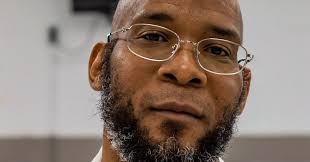The Missouri Supreme Court has halted an agreement that would have saved death row inmate Marcellus Williams from execution.
Williams, who was convicted for the 1998 murder of Lisha Gayle, now faces a scheduled execution on Sept 24, 2024.
The court’s decision came just hours after a St. Louis County judge approved a plea deal that would have allowed Williams to avoid execution in exchange for a no-contest plea.
Williams, 55, has maintained his innocence since his conviction, and the case has attracted significant attention due to concerns over the integrity of the evidence.
Earlier this year, St. Louis County Prosecutor Wesley Bell moved to vacate Williams’ conviction, citing multiple flaws in the case, including DNA contamination and the mishandling of evidence.
However, the Missouri Attorney General, Andrew Bailey, has resisted efforts to overturn the conviction, maintaining that the evidence against Williams remains strong.
Background of the Case
In 1998, Lisha Gayle, a former journalist, was found dead in her home, and Williams was arrested a month later on unrelated charges. The case against him was largely built on testimony from informants, including a former cellmate and an ex-girlfriend, who both claimed Williams confessed to the crime.
Despite the lack of physical evidence linking Williams to the scene—DNA on the murder weapon and under the victim’s fingernails did not match his—the jury convicted him, and he was sentenced to death in 2001.
Over the years, further DNA testing has continued to show no connection between Williams and the crime scene, leading to calls for his exoneration.
However, recent testing revealed that the DNA on the murder weapon had been contaminated by investigators and prosecutors who handled the evidence without gloves, making it impossible to prove that someone else may have committed the crime.
Legal Developments and Controversy
In January 2024, Wesley Bell, the St. Louis County Prosecutor, filed a motion to vacate Williams’ conviction.
He cited four key reasons, including mishandled evidence, failures by Williams’ original defense team, and racial bias in jury selection.
Bell also highlighted that the jury was predominantly white, with only one Black juror, despite concerns about racially motivated jury exclusions.
As a resolution, Bell’s office proposed a plea deal where Williams would enter an Alford plea—allowing him to maintain his innocence while acknowledging that a conviction could still occur at trial. In exchange, Williams would receive life in prison without the possibility of parole, removing the death penalty from consideration.
However, Missouri Attorney General Andrew Bailey intervened, filing a writ of prohibition to stop the lower court from accepting the plea deal.
Bailey argued that the evidence against Williams was strong and criticized the plea deal, stating that no innocent man would willingly accept life in prison. He maintained that the contamination of the murder weapon did not undermine the original conviction.
What’s Next for Williams?
Williams’ case is now headed to a hearing, with the final decision on his execution resting on a ruling expected by September 13, just 11 days before the scheduled execution.
The legal fight underscores broader concerns about wrongful convictions, racial bias, and the reliability of forensic evidence in capital cases.
Civil rights activists and legal experts continue to rally behind Williams, pointing to the lack of physical evidence and the flawed testimonies used to convict him.
A petition calling for clemency has gained significant traction, with supporters arguing that executing Williams under these circumstances would be a grave miscarriage of justice.
As the hearing date approaches, attention will focus on whether Missouri’s courts will allow Williams’ execution to proceed or if new legal developments will finally spare him from death row.

